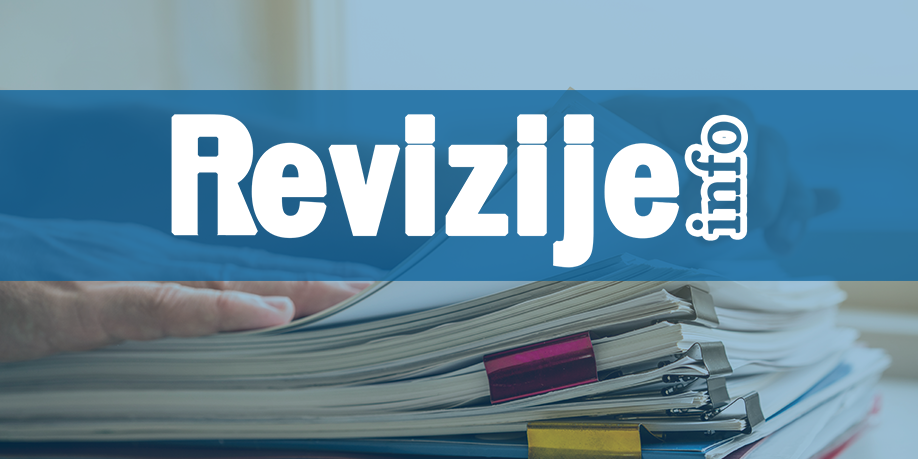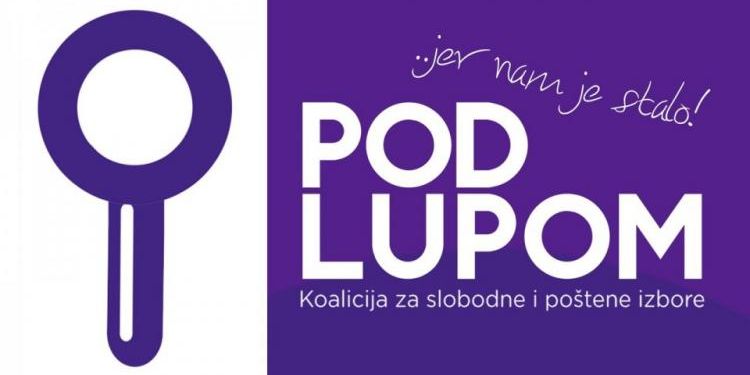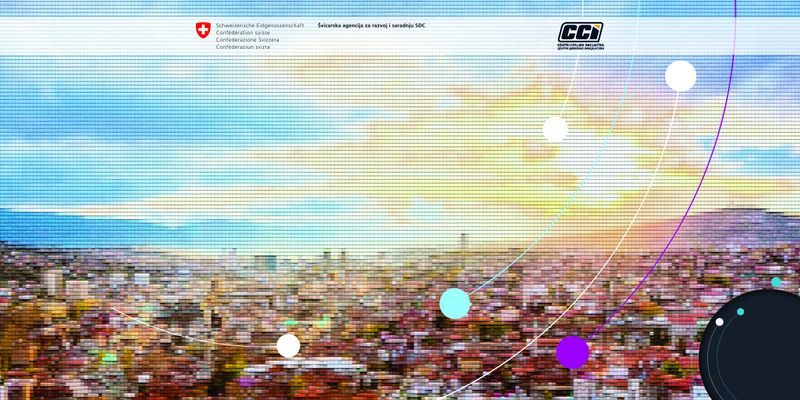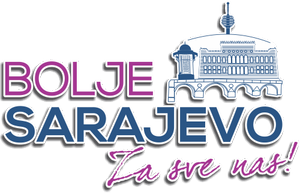The results of monitoring the work of governments and parliaments in BiH at all levels of government for the first six months 2011 published. It took the Parliamentary Assembly almost full nine months to be constituted. The Council of Ministers is yet far away from that. While the surrounding countries are advancing, at a faster or slower rate, toward the Euro-Atlantic integrations, BiH is at standstill, waiting. Delays in constituting government, adoption of the budget and work program show utter lack of responsibility of politicians in terms of their own obligations toward citizens. Thus it turns out that the same one who create and implement the regulations and laws are those who violate them. The findings of the report on monitoring the work of the authorities at the entities' and the state levels are available for viewing here. These activities are undertaken within the CAPP Project – Civic Advocacy Partnership Programme, which is financially supported by USAID.
BiH Parliamentary Assembly – was constituted at the end of June; only 9 months after the elections. None of the Assembly homes has the work programs adopted. The budget of BH institutions and the international obligations of the country for the current year have not been adopted. Nine months lost during the post-election problem is not just any problem. This is a problem in a country in which the authorities have been struggling with their own inefficiency for years. Losses have been incurred that are irreparable. In terms of Euro-Atlantic integrations, in 1999 BiH was at the same position as Serbia and Croatia. Today Croatia has ended negotiations and Serbia is expecting to be approved the candidate status. At the same time BiH is still groping in the dark.
The state parliament did not adopt a single law in the first half of 2011, and a total of 6 meetings were held. During the same time the National Assembly of Serbia adopted 61 laws and the Croatian Parliament 152 laws. Figures speak for themselves. No comment is necessary.
Summary report for the six-month period of work of this body is available here.
BiH Council of Ministers- works in technical mandate. In the first 6 months 2011, 14 regular and one repeated session were held. Our ministers spent the total of 10 hours and 58 minutes in session. They put forward 12 bills for adoption and adopted 525 different measures. What kind of measures? To what degree do they concern key life problems of citizens? Only about 20% of those measures have something to do with citizens' real problems – unemployment, social and pension policies, corruption, and the like. Budget, as the most important act that a government should adopt, has not been even proposed by the Council of Ministers, consequently it cannot be adopted in the parliament.The above information is only a part of the findings of monitoring the work of legislative and executive authorities conducted by CCI. A summary of Report for Six-Months Period of the Work of this Body is available here.
During the first 6 months 2011 the Republic of Srpska National Assembly adopted only 18 laws. The MPs planned 85 laws for the second half of the year. In the meantime, the parliaments and its members left for a 40-day vacation! During a half a year the National Assembly worked at uneven rate. In January and May the MPs had only two sessions of one meeting in each month and did not enact a single law.
Summary of the Report for six-month period of the work of this body is available here.
The Republic of Srpska Government, with its newly elected members, held the first meeting at the beginning of February 2011, 4 months after holding the general elections. Problems around constituting are a result of the complexity of BH political system. This was a reason why the Government was delayed in adopting the Program of Work. This Government shows greater efficiency compared to the previous one, but the problem concerning its work has to do with the fact that of total number of adopted items on the agenda only 15% of them concern real problems of the citizens. More information available here.
In the first half year of 2011, 7 meetings were held by each of two BiH Federation Parliament homes. During that period they showed greater efficiency in adoption of laws compared to the previous Parliament assembly for the same mandate period. Although the FBiH Government approved 19 bills, the parliament adopted only 3 laws. Unfortunately, this data shows utter dysfunctionality and lack of coordination between legislative and executive authorities in FBiH. However, this assembly of the Parliament also suffers from the problem of a big number of delegates who are not attending the plenary sessions without a good cause. Summary of this report is available here.
The Government of BH Federation adopted the Program of Work for 2011 only in May, although it was envisaged that it should be adopted by the beginning of the calendar year. The Government planned to adopt 201 measures in the first half of the year. Only 105 were implemented. There was a similar situation with approving the proposals of laws. They planned to adopt 29 laws during half-year, and managed to approve only 17 draft laws.
A working group was formed within the project Reduction of Use of Plastic Bags in BiH, that gathered the representatives of entities' competent ministries, non-governmental organizations and major producers of plastic bags in BiH. Its task was to make influence and to propose permanent and applicable solutions for pollution with plastic bags in BiH. Previously, Analysis of Use of Plastic Bags in BiH had been developed within the project, highlighting this issue as well as possible solutions to the problem of environment pollution. These activities are undertaken with the support of the Delegation of the European Commission in BiH.
After publishing the Analysis on Use of Plastic Bags in BiH, the activities on decreasing the use of plastic bags in BiH entered the next stage. In addition to the published Analysis, the first stage had a goal to present the general problem to the public, and inform about possible solutions to the problem of pollution of the environment in BiH caused by plastic bags. In parallel to these activities, meetings with the representatives of the entities' ministries in charge of this field were held, in which CCI's project and intentions to permanently solve this problem in BiH were presented. The representatives of the ministries gave their full support to the project and, as their contribution, delegated their representatives that joined the Working Group for developing the model of the solution to the problem of plastic bags in BiH.
The Working Group brings together the representatives of the ministries, non-governmental organizations and major producers of plastic bags in BiH. The first meeting of the Working Group was held in mid-June 2011 on the premises of the Ministry for Spatial Planning, Construction and Ecology of the Republic of Srpska, where the members of the Working Group presented their experiences and views on how to solve the problem of pollution caused by plastic bags.
After the discussion a number of conclusions were adopted, and the key conclusion was that the solution to the problem of plastic bags in BiH, besides a support that it has in already adopted entities' environmental laws, will have another support in the Rulebook on Packaging and Packaging Waste in FBiH and the Law on the Fund and Financing the Protection of the Environment in the Republic of Srpska as well as in the implementation regulation concerning the packaging and packaging waste in RS.
Working Group members got specific tasks, each in his/her own field, that they will present in the first next meeting planned for the beginning of September.
Further activities before the next Working Group meeting will be in the direction of forming a stronger support by a wider community to solving this problem, through an open invitation to environmental NGOs to join coalition advocacy in the public and the invitation to all existing supermarket chains to join, with their capacities, the process of using plastic bags in BiH thus showing socially responsible behaviour.
Centres for Civic Initiatives started an initiative for solving the problem of pollution of the environment with plastic bags, which are disposed of in the nature in big quantities, thus making Bosnia and Herzegovina the most polluted country in the region, when it comes to that type of waste. In parallel to stimulating the production of bio-degradable bags, one of the possible solutions would be to pass by-laws to ban or discourage production and trading of the thinnest non-degradable plastic bags, which are the most numerous and hence the biggest pollutants. Some European countries, like Ireland, introduced, as long as 10 years ago, a levy on plastic bags which resulted in indirect decrease of their mass utilization.
Two street promotional actions on the campaign of fighting corruption in health sector and safeguarding the rights of patients took part within the project 'Choose to Fight“ ('Izbori (se)'), were organized by CCI in July. During these actions held in Mostar on 15 July and in Banja Luka on 27 July, badges with the text “I don’t give a bribe” were distributed to the as well as informative health booklets with the information on legally guaranteed rights of citizens and patients, all to the end of highlighting the detrimental effect of the corruption in society as a whole and the futility of giving bribe in order to get adequate health service. These activities were financially supported by the Embassy of Kingdom of Holland in BiH.
The street action is a continuation of the activities on information-advocacy campaign of fighting corruption in health sector, started at the beginning of 2011. Its goal is to try to contribute to finding system solutions for the protection of the rights of individuals and dignity of doctor's practice, and to educate the public on the rights of the citizens and patients guaranteed under law.
"Giving and taking bribe is a criminal act and there is a solution for that, while the readiness and courage of citizens to refuse to take part in it and to report on corruption is one of the ways to solve this serious problem of our society. Therefore, in addition to system, legal solutions for fighting corruptions, one of the key steps is to win every individual to make their own contribution in fighting corruption. Another step aims at raising awareness on long-term detrimental effects of corruption and on importance of exercising the rights of the patients guaranteed under law as well as the rights of citizens in general“, said Adis Arapovic, CCI project manager.
We would like to remind that, in the last two months CCI signed the cooperation memoranda with 17 leading health institutions in BiH, aiming at a joint fight against corruption and promotion of patients' rights. After Sarajevo, Mostar and Banja Luka, CCI plans to organize promotional actions throughout BiH in the forthcoming period in order to make sure that as many citizens as possible learn about their rights and make their contribution to the campaign of fighting corruption in health sector.
“I pay what I spend” is a new CCI campaign implemented in Zenica and Travnik, as part of the project „2010 Elections“. The goal of the campaign, within its overall intention to ensure the exercise of the right of the consumers and decrease corruption, is to decrease the number of lump sum bills, by introducing consumption metering. Utilities providers should base their operations on the basic principle of the consumers, which is that the utilities products and services can be defined, measured and billed. These activities are financially supported by the Embassy of the Kingdom of Holland in BiH.
Reasons for launching the campaign in these two cities are the following: the first is that the CCI previously implemented a project of evaluation of the quality of life in 14 towns, and these 2 towns were among them, and the second reason is that provision of all these utilities services exists in both these towns.
Association of Consumers Central Bosnia-Travnik is a partner in this campaign. They have both experience and contacts with citizens, they are aware of all the problems and represent the interests of consumers – these were sufficient arguments for partnership in the campaign.
Everyone along the delivery chain is included in project goals, starting from relevant municipal services, through utilities providers to consumers. A consensus about implementing the activities was reached among them. In both towns Working Groups for the Implementation of the campaign goals were formed, composed of the directors of all utilities providers, the Association of Consumers of Central Bosnia and the representatives of municipal services – in charge of public utilities. Such an approach was welcomed by everyone, and we do not expect some major resistance in the sense of denial or rejection.
At the beginning of the campaign an opinion poll was conducted showing that more than 83% respondents support the introduction of consumption meters (heating meters and water meters) while a little more than one third were satisfied with the cost of water. Elderly people, unemployed and persons with low level of education are the ones who support the introduction of consumption meters to a lesser degree, while young persons and more educated persons, as well as employed persons support this principle to a much higher extent.
After that, an analysis was conducted that showed the following :
Travnik
Travnik does not have fully regulated legal framework in the field of public utilities. The Municipality has adopted all the necessary decisions and regulations, however there is no cantonal law on public utilities activities (the old law from the former Republic is applied). The cantonal Law on Management and Maintenance of Common Areas and Devices is not being implemented either. The prices of heating and transportation of garbage are quite high compared to the region, as they are commercial, i.e. market based.
Besides such high prices, the collectability is above 80%, which is satisfactory compared to the period of a couple of years ago. Citizens are satisfied with the services and their provision, but not with the price. The activities of the public utility companies and the municipality on introduction of water meters for legal entities and private houses started more seriously in 2009, were intensified in 2010 and continued in 2011. So far in the city area itself, about 6.000 water meters have been installed (of that about 2.500 for legal entities – source JKP Bašbunar), and the remainder – about 3.000, mostly in private houses.
As for the installation of heating meters, they were installed in all institutions and public entities where that was technically feasible, so that consumption is paid upon reading.
Zenica
Zenica has a fully regulated legal framework in the public utilities field, which means that all the laws and regulations have been enacted, the prices of heating and other public utilities are lower than in Travnik, and collectability for the services is above 85%. Citizens are satisfied with the delivery of water and transportation of waste, however, due to old installations and welfare rather than market price of heating they are not satisfied with the services and delivery of heating. The activities of the public utility company and the municipality on introduction of water meters for legal entities and private houses started in 2009, were intensified in 2010 and continued in 2011. According to the information from JP „Vodovod i kanalizacija“ during the period April 2010 to April 2011, about 400 water meters were installed, so there are currently 11.430 consumers with installed water meters, out of total 26.000 registered water consumers.
Installation of consumption meters is quite simple with business buildings and private houses, however there is a problem of their installation in the block of buildings. As these buildings were constructed some 50 years ago, the public utility infrastructure is outdated, and adjusted to the system of common consumption. This makes the implementation of this principle very difficult. However, the process has to be started in these buildings too. Citizens must take more active part and realize that this is their property, i.e. private property and that major funds need to be invested, the funds that are less and less available. Simply said: cost of bringing the energy-generating product to the building is borne by the utilities providers, and all costs within the building are borne by the occupiers- i.e. consumers.
Many consumers seem not to be quite clear about that „postulate”. There are many pre-conditions that need to be satisfied before this principle starts to change, but it is high time something was done about it.
The public in these two towns could hear about the goals of the campaign from the jingle broadcast on TNT radio during a month, and posted on web portal (hronika .ba.)
About 20.000 flyers will be distributed to the citizens at the beginning of September. It is our intention to use this flyer to provide citizens-consumers with basic information about individual public utilities consumption in these two towns (collection and transport of community waste, provision of drinkable water, draining and filtering drain waters and supply with heat energy), about the rights and obligations of consumers, rights and obligations of utilities providers and those of municipal authorities.
The implementation of the campaign opens up an area for harmonization of legislation with EU standards, the implementation of the fundamental principles of the Law on Protection of Consumers, possibility for the individuals and the community to make some savings, and investments for the purpose of energy efficiency.

In Vlasenica and Milici, new municipalities in which the Centres for Civic Initiatives have been implementing, since the beginning of this year, the “Citizens’ Participation in Decision-Making Processes” component, a part of the Project “Reconciliation and Development of Communities/Participatory Democratic Development in 4 municipalities of the Birač region 2011 – 2013", started the training of Working Development Groups, composed of the representatives of Municipal Administrative Service and Local Communities. CARITAS and AC Priroda are the partners on this project, financed with the support of the Swiss Government (the Swiss Agency for Development and Cooperation, SDC) and the Government of Lichtenstein.
In the introductory training for the members of WDG of Vlasenica and Milici, the participants were familiarized with the project and its goals, while in the thematic and practical part of the training they were informed about the bases of the procedures for making and adoption of procedures. Training participants presented their views from their municipalities with regards to the decisions adopted, their application and problems in implementation.
In the next period until holding of the new Workshop, the Municipal Team members will, in cooperation with CCI, finally define which citizens’ participation mechanisms will be proposed to Municipal Assemblies for adoption. They will also identify the participation mechanisms that will require the proposal of improved application, as these municipalities already have some of those mechanisms, but they are not sufficiently or not at all applied.
After this Workshop, Municipal teams will start the activities on designing the citizens’ participation mechanisms in decision-making processes, that will be initiated for adoption in Vlasenica and Milici Municipal Assemblies.
As part of these activities, CCI organized the radio show on MAGIC radio in Milici on the subject of project activities and the results accomplished, as well as on the goal relating to the inclusion of the public in the process of preparation for adoption of new policies in Milici and Vlasenica Municipalities. The aim of these activities is to increase citizens’ participation in decision-making as well as transparency of work of elected representatives. The main goal of the project in which CCI takes part is to promote the dialogue and tolerance through the activities of development of the communities and citizens’ participation in decision making of the Birac region (municipalities Bratunac, Srebrenica, Milići and Vlasenica).
At NGOs fair, held in July as part of Demofest in Banja Luka, CCI presented its work to the young people. Demofest is a manifestation of regional character that promotes demo bands from the area of former Yugoslavia. It is supported by MTV Adria. CCI took an opportunity to inform the young people who visited Banja Luka during three days of the festival about its activities.
Extensive promotional material was distributed in order for CCI to present its work and approach the young people. The overall message sent by CCI was that the young should get started and take part in decision-making processes, starting from their schools, universities, municipalities, etc. The apathy of the young people in BiH is especially pronounced by their big lack of interest for social movements and issues in the country. The opinion polls have shown that about 50% of the young with the right to vote, up to 30 years of age, do not turn out for elections. The percentage of those who make decisions important for the present and the future at other levels is even greater.
The CCI's activities on Demofest are only a small contribution to awakening the young and make them interested in joining the decision-making processes.
To that end CCI starts publishing the electronic journal that will be distributed by email to all our activists, partisans, and volunteers, as well as on CCI FB profile.


















